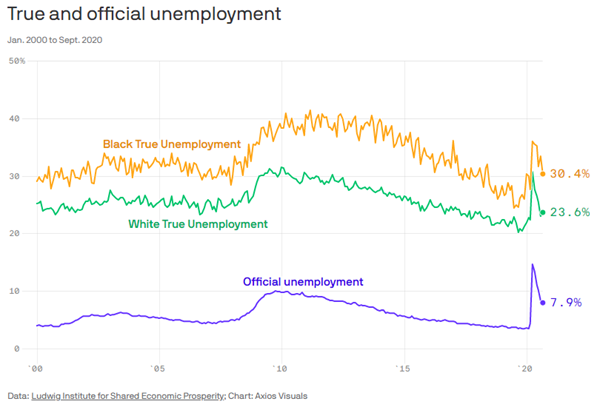Acting vs. Reacting
Year-End Planning Reminders
2020 has certainly been a year of unexpected changes and challenges. While we know everyone is eager to flip their calendar and start a new year, we wanted to send you a list of things to think about as we near year - end:
Cares Act and RMDs
As a reminder, taking a Required Minimum Distribution is not required for 2020 due to the CARES Act that was passed earlier this year. However, that doesn’t mean that you can’t take a distribution from your IRA especially if you rely on the money for living expenses. It may also make sense to take a distribution if you know your tax bracket will be higher in the future. Everyone over the age of 72 should have already discussed this with us but if you have not please feel free to give us a call to discuss your options.
Gifts and Charitable Donations
Are you thinking about making additional gifts to family or charitable donations in 2020?
If so, please let us know as soon as possible. Once we have the paperwork in hand, transfers are typically completed within two to three business days. Given the high volume of gifts around the holidays, we need to have the paperwork by December 21st at the latest to ensure that the transfers happen before the end of the year. If you are over the age of 72, you should consider the ways to make charitable donations directly from your retirement accounts.
Capital Gains and Tax-Loss Harvesting
Do you have large gains or losses outside of your accounts with Carroll Financial?
If not, there is nothing you need to do. If you do, please let us know because this might be a good time to take some additional gains or perhaps harvest some losses.
Tax Loss Carryforwards
Have you let us know about any tax loss carryforwards?
If not, please let us know so we can note them and take these into consideration when we review your accounts.
Income Planning
How is your money working for you?
Your 2020 budget may have looked very different as compared to most normal years. Many of our clients have realized this year the difference between the budget they need to live on and the budget they want to live on. It’s important to distinguish between these two to ensure that you have flexibility in your budget if and when you need it for unexpected circumstances. The end of the year is a great time to review your spending and create a budget for the upcoming year. Oftentimes reviewing your spending can bring to light ways to save. It's also helpful to review your withdrawal rate with your advisor to make sure it is in line with your long-term goals.
Beneficiary Designations
Have you reviewed your beneficiary designations this year?
Make sure your current designations are still in line with your estate plan and give us a call if we can help you make any related changes.
Roth Conversions
We have had several conversations about Roth conversions this year. It’s important to remember that the real opportunity to convert to a Roth happens when you have little to no taxable income. December 31st is the deadline to complete a Roth conversion so let us know if you would like to discuss whether or not this makes sense for your situation.
Medicare Open Enrollment
Do you need to enroll in Medicare?
The 2021 Open Enrollment Period runs from Thursday, October 15th to Monday, December 7th, 2020
Bottom Line:
If you have questions or would like to talk about any of the items above, give us a call. We're here and happy to help as you prepare for the end of 2020.
Required Disclosures:
This article was originally written by Kris Carroll of Carroll Financial Associates and is copywritten but shared with permission. Advisory Services offered through Carroll Financial Associates, Inc.. a Registered Investment Advisor. Registration does not imply a certain level of skill or training. Carroll Financial and Peak Alpha Wealth Management, L. L. C. are not affiliated.
For a comprehensive review of your personal situation, always consult with a tax or legal advisor. Neither Peak Alpha Wealth Management LLC nor any of its representatives may give legal or tax advice.
Copyright © 2020 Carroll Financial Associates, Inc., All rights reserved. Shared with permission to Peak Alpha Wealth Management LLC. Non-affiliate.
Copyright © 2020 All rights reserved to Peak Alpha Wealth Management LLC. Article facts remain for content. Article altered, edited and updated for our clients best interest by Jeanne Hungerford of Peak Alpha Wealth Management, L.L.C. 3010 3rd Street South Ste. A Jacksonville Beach, FL 32250 (904) 500-5050.
Advisory Services offered through Carroll Financial Associates, Inc. a Registered Investment Advisor. Registration does not imply a certain level of skill or training. Carroll Financial and Peak Alpha Wealth Management, L. L. C. are not affiliated. CNBC and Peak Alpha Wealth Management L.L.C. are not
affiliated. For a comprehensive review of your personal situation, always consult with a tax or legal advisor.
Neither Peak Alpha Wealth Management LLC nor any of its representatives may give legal or tax advice. We are not affiliated with Carroll Financial Associates Inc.,
Copyright © 2020 All rights reserved to Peak Alpha Wealth Management LLC. Article facts remain for content. Article altered, edited and updated for our clients best interest by Jeanne Hungerford of Peak Alpha Wealth Management, L.L.C. 3010 3rd Street South Ste. A Jacksonville Beach, FL 32250 (904) 500-5050.
Once in a very great while there comes a year in the economy and the markets that may serve as a tutorial, or better yet a master class, about the principles of successful, goal-focused investing in the long term. 2020 was certainly such a year.
On December 31, 2019, the S&P 500 closed at 3,230.78. This past New Year’s Eve it closed 16.3% higher at 3,756.07. You might infer from these figures that the equity market had quite a good year. Indeed it did, but what should be sophenomenally instructive to the long-term investor is how it got there.
From a new all-time high on February 19, the market reacted to the onset of the greatest public health crisis in a century by going down roughly one third over five weeks. The Federal Reserve and Congress responded with massive intervention and the economy learned to work around the lockdowns, which resulted in the S&P 500 regaining its February high by mid-August.
The lifetime lesson here:
At its most dramatic turning points, the economy cannot be forecast and the market cannot be timed.
Instead, sticking to a long-term plan and acting as opposed to reacting (which is our investment policy in a nutshell) once again demonstrated its enduring value.
The second great lifetime lesson of this educational year had to do with the presidential election cycle. To say that it was the most hyper-partisan election in living memory just doesn’t come close to adequately describing it. Supporters of both candidates were genuinely convinced that the other would, if elected or reelected, precipitate the end of American democracy. And those who exited the market in anticipation of the election got thoroughly and almost immediately skunked.
The enduring historical lesson:
Never get your politics mixed up with your investment policy.
As we move into 2021, we have been assured by the Federal Reserve that it is prepared to hold interest rates near current levels until the economy is functioning at a level close to full capacity, which could be as long as two to three moreyears. This makes it difficult to see how we can pursue our long-term goals with fixed income investments. Stocks and their potential for long-term growth of capital seem to be the more rational approach. In turn, we tune out volatility. We act. We do not react. This was the most effective approach to the unruly fluctuations of 2020, and I believe it always will be.
Bottom Line: We cannot predict what 2021 will bring, but we can make smart and careful decisions about how we will invest over the coming years.
Required Disclosures:
This article was originally written by Kris Carroll of Carroll Financial Associates and is copywritten but shared with permission. Advisory Services offered through Carroll Financial Associates, Inc.. a Registered Investment Advisor. Registration does not imply a certain level of skill or training. Carroll Financial and Peak Alpha Wealth Management, L. L. C. are not affiliated.
For a comprehensive review of your personal situation, always consult with a tax or legal advisor. Neither Peak Alpha Wealth Management LLC nor any of its representatives may give legal or tax advice.
Copyright © 2020 Carroll Financial Associates, Inc., All rights reserved. Shared with permission to Peak Alpha Wealth Management LLC. Non-affiliate.
Copyright © 2020 All rights reserved to Peak Alpha Wealth Management LLC. Article facts remain for content. Article altered, edited and updated for our clients best interest by Jeanne Hungerford of Peak Alpha Wealth Management, L.L.C. 3010 3rd Street South Ste. A Jacksonville Beach, FL 32250 (904) 500-5050.
Advisory Services offered through Carroll Financial Associates, Inc. a Registered Investment Advisor. Registration does not imply a certain level of skill or training. Carroll Financial and Peak Alpha Wealth Management, L. L. C. are not affiliated. CNBC and Peak Alpha Wealth Management L.L.C. are not
affiliated.









































